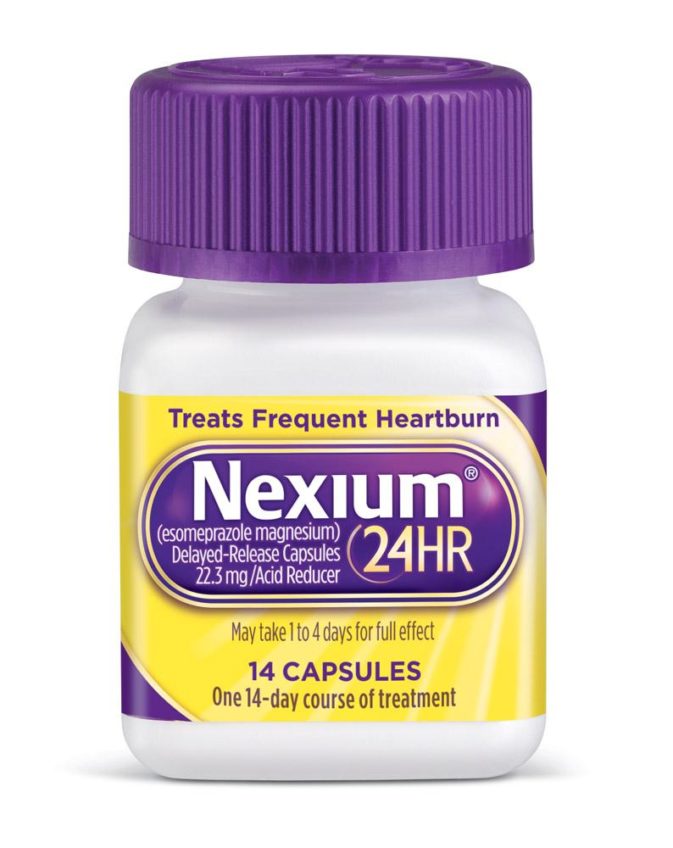Speculation on the near mega-merger of AstraZeneca and Pfizer may have subsided, but the companies’ interests actually have aligned—albeit briefly—for today’s launch of over-the-counter, 20mg “Nexium 24HR.”
Pfizer bought the rights to OTC Nexium, also known as the Purple Pill, in 2012 for an upfront payment of $250 million, as well as milestone and royalty payments based on product launches and sales. FDA approved the acid reflux drug’s OTC version in March of this year.
The OTC launch coincides with the scheduled generic entry date for prescription Nexium in the US. Prescription Nexium faces patent expiration in 2015, although under a settlement with AZ a number of generic manufacturers could enter earlier. Today (May 27) is the earliest possible entry date under a settlement.
Whether generic versions of the Rx pill make their debut is a matter of “significant uncertainty,” wrote Credit Suisse analysts.
That’s because, while Ranbaxy holds the 180-day exclusivity, potentially limiting others from entering the market until Nov. 27, the generics maker is operating under a Consent Decree issued by the FDA due to manufacturing violations, and this limits the ability of Ranbaxy to import active pharma ingredients to the US.
The options, according to Credit Suisse, range from the FDA allowing Ranbaxy to launch today, to the agency revoking the Indian firm’s exclusivity altogether and triggering multi-source generic entry.
Amidst the uncertainty, the analysts expressed skepticism as to whether the OTC launch will make a splash—at least in the short-term.
“We expect that the commercial impact of OTC Nexium will be limited at the current dosage,” the investment bank’s European pharmaceutical team wrote in an investor note this morning. “In FY13, 20mg Nexium represented only 5-6% of total US prescriptions.”
The pill is available in a 40mg dose, as well—which is recommended for use in reducing the risk of NSAID-associated gastric ulcer, short-term treatment of GERD (gastroesophageal reflux disease) and healing of an inflamed, swollen or irritated esophagus.
AZ reported sales of $3.8 billion for Nexium in 2013.
While uptake of the acid reflux pill may be slow initially, Credit Suisse noted that the imminent arrival of generics of the prescription version may actually give the OTC a boost: “In the medium term, the impact could be greater as some managed care formularies have traditionally reduced reimbursement of drugs approved in the OTC channel.”







